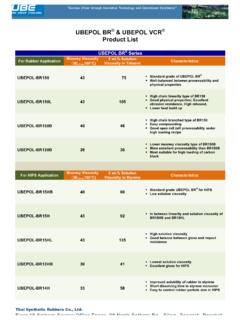Transcription of THE UNIVERSAL BASIC EDUCATION (UBE) …
1 JORIND 11(1), June, 2013. ISSN 1596-8308. ; THE UNIVERSAL BASIC EDUCATION (UBE) programme IN nigeria : PROBLEMS AND. PROSPECTS. Uche S. Anaduaka Department of Science and Environmental EDUCATION ,University of Abuja, Abuja, nigeria E-mail: and Chinyere F. Okafor Department of Science EDUCATION , Anambra State University, Uli Abstract This paper looked at the role of EDUCATION in the development of any nation, noting among others that EDUCATION enables people to be good citizens. It therefore saw the need for a qualitative EDUCATION in nigeria as such EDUCATION is what empowers its recipients to be useful members of the society and prepares them for success in life. The paper traced educational development in nigeria from Independence to the launching of the UNIVERSAL BASIC EDUCATION (UBE) in September 1999. The UBE was launched in nigeria to address the problems that brought about the failures of the previous educational policies and programmes that existed before it.
2 The aim was to address the agitations and yearnings of the Nigerian people for an educational system that would be more relevant to the socio- economic, political and cultural background of the country. However, the UBE itself is also being bedeviled by a lot of problems. The paper examines these problems and considers the benefits of proper implementation of the UBE. programme . Suggestions were made for a way forward. Keywords: EDUCATION , UBE programme , problems, prospects Introduction levels, he said, comes with a price, as no nation can The role of EDUCATION in the march towards development aspire to join the committee of developed nations for any nation cannot be overemphasized. According to without character and respectability. Ochoyi and Danladi (2008), EDUCATION is generally concerned with the transmission of worthwhile values A good citizen loves his country. He pays his taxes and such as skills, knowledge and planned activities that can obeys the laws of the land.
3 He respects constituted develop learners' potentials for national development. authorities and joins in promoting community and Adeyanju (2010) noted that no development can occur national development. He takes no bribe and gives none. at all without EDUCATION , and no peace or security He sees a public office not as a chance to enrich himself without development. To him, at personal level of and acquire wealth for his generation yet unborn, but as development, EDUCATION is one of the strongest weapons a call to dedicate himself to the service of others. This is for escaping from poverty because it improves the why a major goal of EDUCATION in any nation is to quality and chances of the individual's progress. prepare its citizens for responsible and productive adult life so as to be able to function honestly, efficiently and However, EDUCATION is not only for escaping poverty. It effectively in the society in which they live. According also influences an individual's moral, spiritual, physical to the Nigerian National Policy on EDUCATION (2007), and intellectual self.
4 EDUCATION trains people to be good EDUCATION is for citizens. An individual does not automatically become a a. The development of an individual into a good citizen. He is educated to be one. This EDUCATION morally sound, patriotic and effective citizen. begins from the home and continues through school. Adeyanju(2010) rightly pointed out that it may well be b. The total integration of the individual into the that some of the corrupt practices, unprofessional and immediate community, the Nigerian society anti-social behaviors we observe at all levels of society and the world as a global village today, including the aggressive disruptive ones in our political, social and economic lives, result directly from c. The inculcation of national consciousness, the neglect of character EDUCATION at home and in values and national unity and schools. According to him, we continue to emphasize EDUCATION merely as number of credits in WAEC and d. The development of appropriate skills, mental, NECO scores.
5 The neglect of character EDUCATION at all physical and social abilities/ competencies and 152. JORIND 11(1), June, 2013. ISSN 1596-8308. ; of empowering the individual to live in and objectives were not being fully realized. The failure of contribute positively to society. the programme was blamed on lack of fund, poor planning and implementation. Adeyanju (2010) however cited a World Bank Report as noting that Nigerians have not been receiving quality Later on, the 6-3-3-4 system was also introduced and job-related EDUCATION .According to Omotayo, nationwide by the Federal Government precisely in Ihebereme and Maduewesi (2008), quality EDUCATION 1982. This system of EDUCATION required a child to spend can be viewed as specific standard of EDUCATION 6 years in primary school, 3 years in junior secondary attainable against the backdrop of the existing school, another 3 years in senior secondary school, and international standard. Such EDUCATION must be 4 years in a tertiary institution.
6 It replaced the 6-5-4. functional. Educationists describe functional EDUCATION system that was in operation before its introduction. as that which emphasizes technological growth, self Gideons and Sorkaa (2008), however, noted that most of employment, self reliance, positive nation building, job these educational policies and programmes in nigeria performance, competency, life skills and lifelong were always implemented without a reliable assessment EDUCATION (Akubuilo, 2008). Fafunwa (1986) also of the country's needs, without proper funding and considers qualitative EDUCATION as functional in nature. without monitoring and evaluation. Expectedly, despite He sees qualitative EDUCATION as that which can the 6-3-3-4 system, the rate of illiteracy was still high, empower the recipients to be useful members of the the conditions of the schools' infrastructures deplorable, society through the acquisition of certain BASIC skills, school dropout was increasing and unprecedented abilities and competencies.
7 EDUCATION is therefore poverty, unemployment, crime and other vices still were qualitative to the extent that it strives to achieve national the order of the day. objectives and prepares students for success in life. This Then the need for a more responsive EDUCATION in the brings out the need for a more pro-active effort in the country became imminent especially following the promotion of EDUCATION for all [EFA] in nigeria . outcome of the Jomtien World Conference held in 1990. and the declaration of EDUCATION for All (EFA) by the It must be borne in mind that the child of today is the year 2000 at that conference. This was also followed a man of tomorrow. If our children are empowered decade later by the Millennium Development Goals educationally, their future would be guaranteed and we (MDGs) which re-emphasized the EFA message, would have given them the best start in life. We would packaging it into eight main goals. The MDGs were an have also made it less difficult for them to carry out eight point agenda adopted by 149 World leaders on their civic duties and responsibilities as members of the how to curb the problem of poverty and its attendant society, since EDUCATION is supposed to prepare one for problems in the under developed countries of the world.
8 Life in the society. And the quality and caliber of human This decision was reached at the United Nations resources in a nation is an indication of the level of Millennium Summit held in September 2000. The development that nation can attain. outcome of the summit was a declaration committing all member countries, including nigeria , to strive and Educational development in nigeria achieve the following goals by the year 2015. Since independence, the successive administrations of Goal 1 -Eradicate extreme poverty and hunger the Nigerian nation have shown interest in and concern Goal 2 -Achieve UNIVERSAL BASIC EDUCATION for the development of EDUCATION . Realizing the role that Goal 3 -Promote Gender Equality and empower EDUCATION plays in national development, Nigerian Women governments have continued to venture into various Goal 4 -Reduce Child Mortality educational policies and programmes with the Goal 5 -Improve Maternal Health expectation of meeting the country's need in the areas Goal 6 -Combat HIV\AIDS, Malaria and other of human and infrastructural development.
9 According to diseases Gideons and Sorkaa (2008), some of the policies that Goal 7 -Ensure Environmental Sustainability. have evolved include the UNIVERSAL Primary EDUCATION Goal 8 -Develop a global partnership for (UPE) programme of the Western and Eastern regions, development (Eze, 2008). the take over of schools from the missionaries, the The introduction of the UBE in nigeria was therefore a establishment of unity schools and the introduction of positive move by the country's administration to strive UPE nationwide. The UPE was introduced across the to achieve the MDGs and to address the agitations and country by the Federal Government in September 1976, yearnings of the Nigerian people for an educational still with the intention of meeting the educational needs system that would be more relevant to the socio- of the Nigerian citizenry. However, a decade after its economic, political and cultural background of the introduction, according to Fafunwa (1986), the country.
10 It also showed Government's commitment to educational outcomes showed that the national the total eradication of illiteracy in the country. 153. JORIND 11(1), June, 2013. ISSN 1596-8308. ; The UBE programme is designed to remove distortions The UNIVERSAL BASIC EDUCATION programme and inconsistencies in BASIC EDUCATION delivery and to BASIC EDUCATION is fundamental to human and national reinforce the implementation of the National Policy on development. It is the foundation upon which other EDUCATION . It is also to provide greater access to BASIC levels of EDUCATION are built and a necessary EDUCATION and ensure its quality throughout the country. requirement for human and national progress (Tahir, The UNIVERSAL BASIC EDUCATION Act (2004) defines 2006). The provision of BASIC EDUCATION for all citizens, UNIVERSAL BASIC EDUCATION as early childhood care and according to Ochoyi and Danladi (2008) has been a EDUCATION , the nine years of formal schooling, adult global objective which nigeria like some other nations literacy and non-formal EDUCATION , skills acquisition sets out to achieve through the UNIVERSAL BASIC programmes and the EDUCATION of special groups such as EDUCATION (UBE) programme .
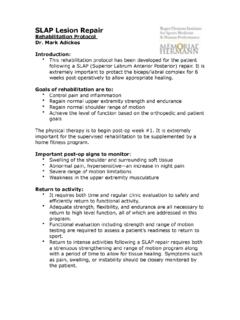

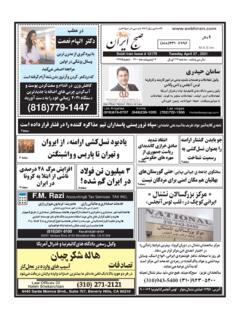
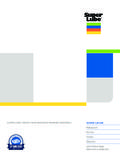
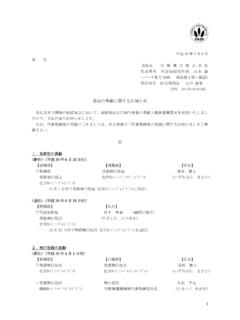
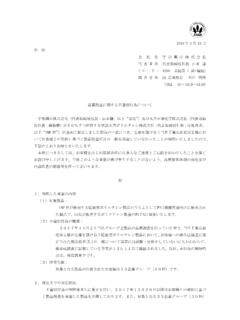
![作業本文-タイプB[01-16] 0514たけ - ube-shinko.co.jp](/cache/preview/9/6/6/1/2/9/6/0/thumb-96612960a6fec0a339f4af5089934b24.jpg)
